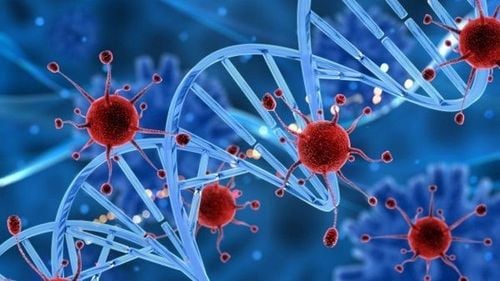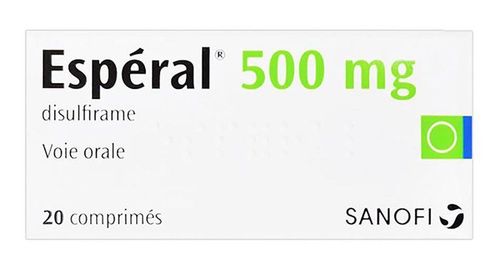Sake is considered a traditional drink from the land of cherry blossoms and has become a distinctive cultural symbol of Japan. Today, thanks to trade, sake is not only confined to Japan but has also gained popularity worldwide. So, is drinking sake good for you?
1. What is Sake Made Of?
Sake is also known as Japanese rice wine. Although it is called wine, sake production is more similar to beer brewing than wine making. Sake is made from rice, wherein the starch in rice is converted into sugar and then fermented into alcohol.
Sake originated in Japan in ancient times, but modern sake brewing techniques were developed in the 14th century by monks in temples near Nara, Kyoto, and Osaka.
Recently, Japanese sake has gradually gained popularity globally. Sake breweries can now be found in North America, South America, Australia, and other regions across Asia. While sake is Japan’s “national drink,” its production has been declining since the 1970s.
2. Nutritional Information of Sake
A 100g serving of sake contains:
- Calories: 134
- Protein: 0.5g
- Fat: 0g
- Carbohydrates: 5g
- Fiber: 0g
- Sugar: 0g
Additionally, sake contains small amounts of selenium, phosphorus, copper, calcium, zinc, and potassium.
3. Is Drinking Sake Good for You?
Some reports suggest that drinking sake benefits sleep quality and skin health, and it may also have anti-inflammatory properties for individuals with diabetes. However, these claims are based on studies conducted on sake yeast—a non-alcoholic supplement—rather than on sake itself. Therefore, more research is needed on the health benefits of sake.
Some reported benefits of sake include:
3.1. Supports Digestion
Sake contains a type of bacteria found in lactic acid known as Lactobacillus. Lactobacillus is a probiotic that may help address digestive issues, especially diarrhea caused by harmful bacteria or antibiotics. Unfortunately, modern sake contains much less lactic acid than it used to. Lactic acid is now primarily found in samhaeju, a traditional Korean rice wine, rather than sake.
This is because the fermentation process for sake has been industrialized by Japanese breweries since the early 20th century, with bacteria playing a much smaller role in modern production.

3.2. Reduces Disease Risk
Moderate alcohol consumption may benefit health: approximately one small glass per day for women and 1–2 glasses for men.
A study on all-cause mortality in Japanese men and women found that moderate alcohol consumption significantly reduces the risk of certain conditions, including cancer and heart disease. Women benefit more in terms of cardiovascular health, while men see more benefits in reducing cancer risks. Additionally, moderate drinking helps lower the risk of ischemic stroke but does not affect other types of stroke. However, it is important to note that heavy drinking increases the risk of all types of strokes. Moderate alcohol consumption may also lower the risk of diabetes. Diabetic individuals who drink small amounts of sake may have a reduced risk of heart disease-related complications. It is crucial to emphasize that benefits only apply to moderate drinking as defined above.
Further research is necessary to confirm the health benefits of moderate sake consumption for various diseases. Experts do not recommend that non-drinkers start drinking alcohol for health benefits. In fact, adopting a healthy lifestyle without alcohol has even greater advantages.
4. Disadvantages of Sake
Drinking any type of alcohol carries risks, so it is important to exercise caution or avoid sake in the following circumstances:
- Do not drink alcohol if you are driving or about to drive.
- Do not drink sake if you are under the legal drinking age.
- Individuals trying to conceive or who are pregnant should not consume any alcohol.
- Avoid alcohol consumption if experiencing depression.
- Individuals with alcohol addiction or those unable to control their alcohol intake should avoid switching to sake.
Some risks associated with alcohol consumption in general include:
4.1. Complications During Pregnancy
Drinking alcohol during pregnancy increases the risk of miscarriage, stillbirth, and fetal alcohol spectrum disorders (FASDs).
4.2. Drug Interactions
Alcohol can diminish the effectiveness of certain medications or turn them into toxic substances. Combining alcohol with medications can cause nausea, drowsiness, or loss of coordination. More severe complications include respiratory issues, internal bleeding, or heart problems.
4.3. Increased Cancer Risk
Women, in particular, are more susceptible to alcohol-related cancer risks. Excessive alcohol consumption raises the risk of all alcohol-related cancers (including colon, oral, throat, liver, and esophageal cancers), particularly breast cancer. Folate supplementation may help reduce these risks, as alcohol often depletes folic acid levels.
Both men and women who consume sake have an increased risk of upper urinary tract urothelial carcinoma. A typical serving of sake contains about 23g of alcohol, exceeding the threshold for increased cancer risk (15g of alcohol per day).

4.4. Other Health Risks
Excessive alcohol consumption carries various health risks. In addition to cancer risks, heavy drinkers may develop the following conditions:
- High blood pressure
- Heart disease
- Liver disease
- Stroke
- Pancreatitis
- Alcohol withdrawal syndrome
- Binge drinking can result in alcohol poisoning and alcohol-related injuries.
Sake can be beneficial when consumed in moderation. Based on your health condition and self-control, you may enjoy sake in appropriate amounts.
Source: webmd.com
Reference source: webmd.comPlease dial HOTLINE for more information or register for an appointment HERE. Download MyVinmec app to make appointments faster and to manage your bookings easily.
To arrange an appointment, please call HOTLINE or make your reservation directly HERE. You may also download the MyVinmec app to schedule appointments faster and manage your reservations more conveniently.








